BFI Future Film Festival 2024 – Yorkshire filmmakers Ava Bounds & Charles Humphreys – interview
February 14, 2024
BFI Future Film Festival returns from 15-18 Feb in 2024, showcasing aspiring filmmakers aged 16-25 and supporting their careers with a four-day programme of activities, events and screenings.
As part of the festival programme, 55 short films will be available to watch online, submitted by some of the most impressive young film makers working in the UK. Recognition by the BFI and inclusion in the festival is not only an indicator of the talent these filmmakers possess, but it can prove an important career booster – all films are in contention for the BFI Future Film Festival Awards, which offers prize money and mentorships.
Two filmmakers involved in this year’s festival are Ava Bounds, Leeds, and Charles Humphreys, Bradford. The pair shared some insight with TSOTA about their films, their promising careers, and the impact of being involved with this year’s festival.
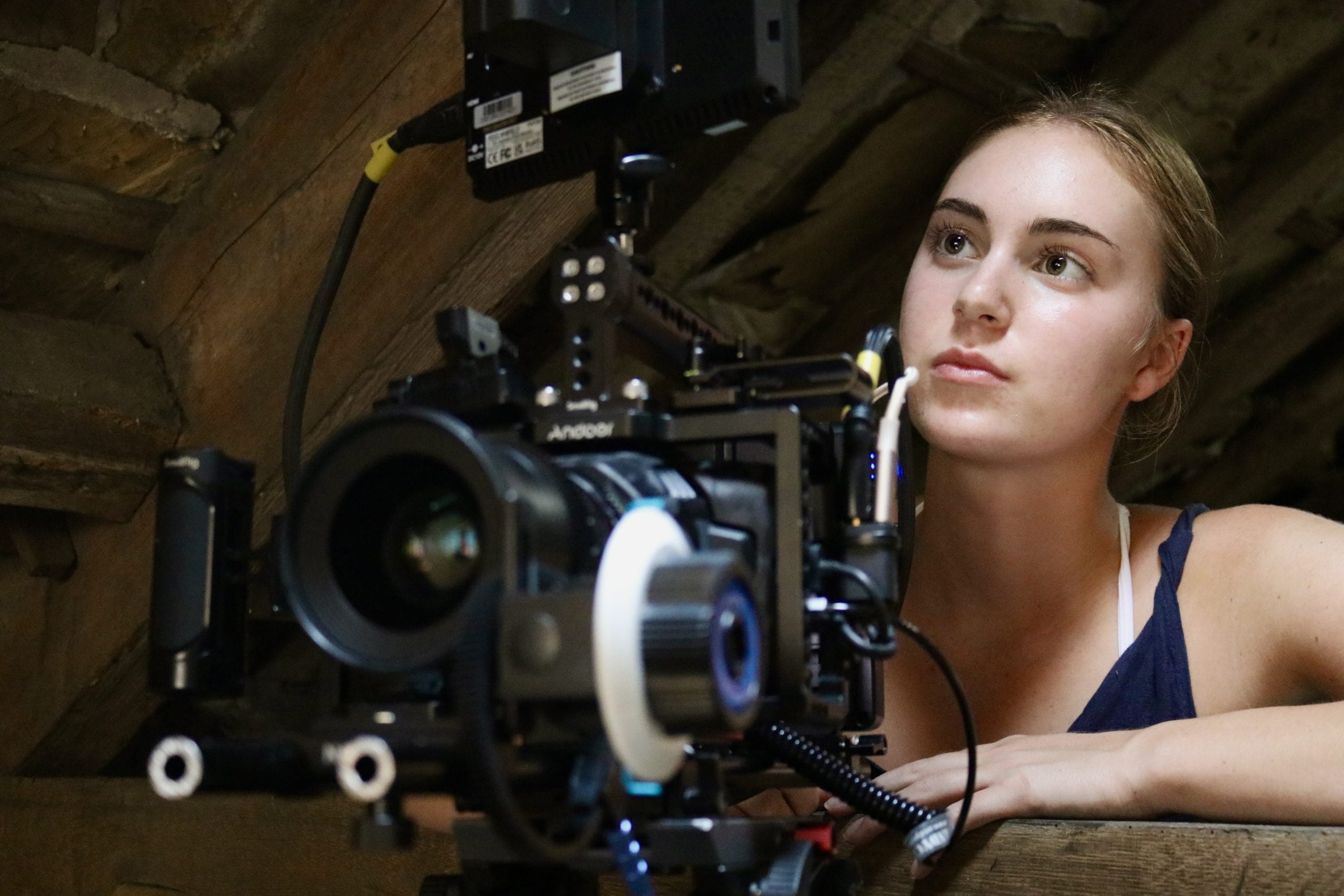
Ava Bounds – nominated for ‘Anna McGee’s Wild Ride’
How did you discover your talent and passion for making film?
Lockdown was the answer for me. Out of boredom, I started to create micro-short, twisted tales with my camera (using David Lynch and the Twilight Zone as inspiration.) I started to submit these films to film festivals, and some did extremely well. This solidified my passion for making zany, absurdist, philosophical films and also helped me to realise that there is an audience out there that are hungry for more of them.
There’s a mix of dark humour and stress throughout the film. Why did you want to make this film and how did you decide on the tone/vibe?
It all started with an image of a baby being thrown out of the window popping into my head. Lovely, isn’t it? I wanted to create a story from this image and here you have ‘Anna McGee’s Wild Ride’: my attempt to show the speed and absurdity of life in less than two minutes. The film is merely an output for my feelings of leaving home, growing up and facing life. Something we all must face.
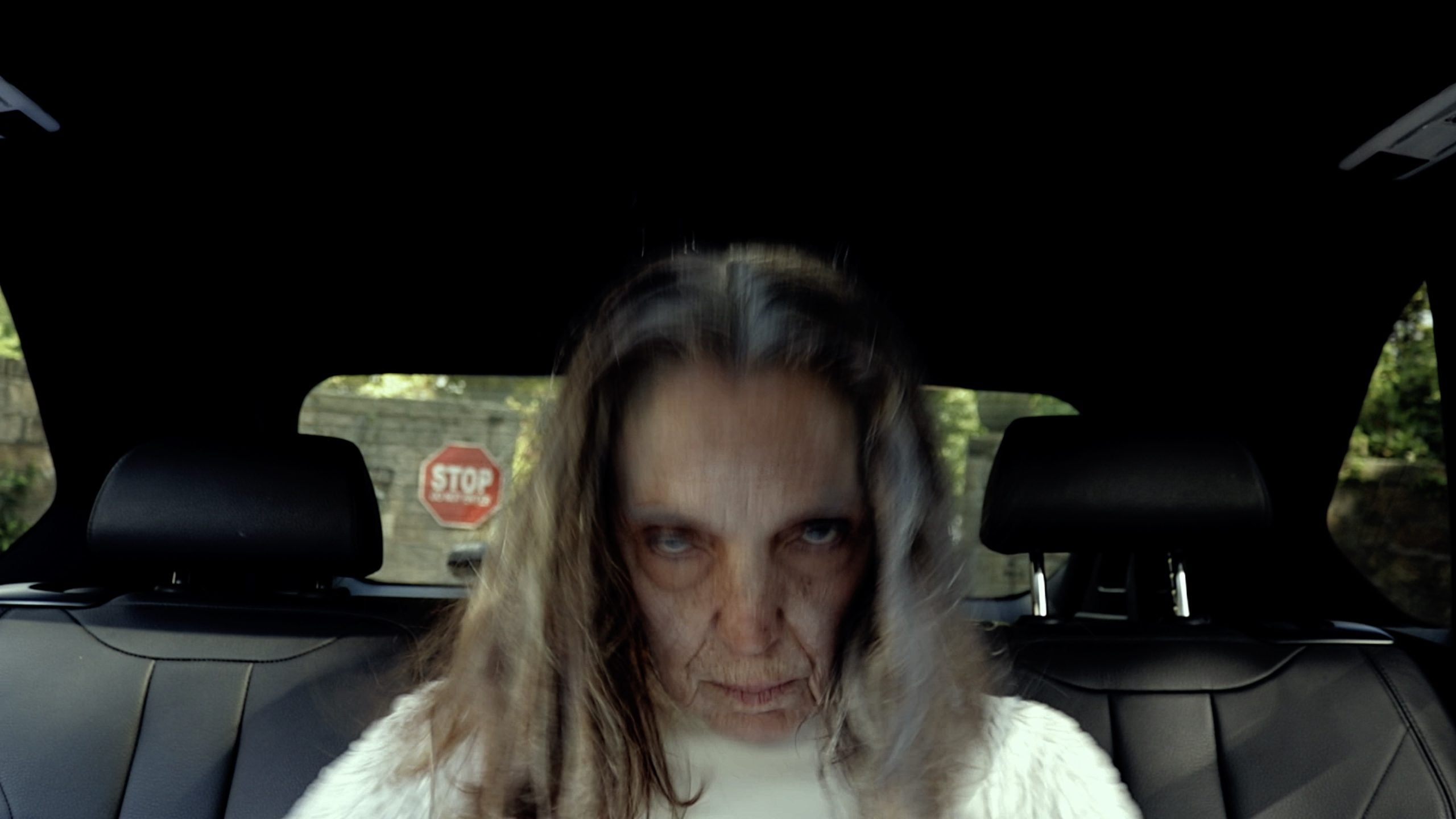
Still from Anna McGee’s Wild Ride
What was the creative process and what were the challenges with making the film?
I shot the film in one day with some of my friends from college. It was an extremely playful shoot to be on-with flying babies, traffic jams and lastly, exploding skeletons. This led onto the challenges of the film- all of the ‘special’ effects. But with a bit of experimenting and laughter, we managed to create some wild images.
The absurdist style of your films – what inspired that and will that always be part of your approach?
I believe it will. I don’t know where it came from, maybe it’s just the way I look at life. It’s just a big, strange game and we must laugh at ourselves now and again.
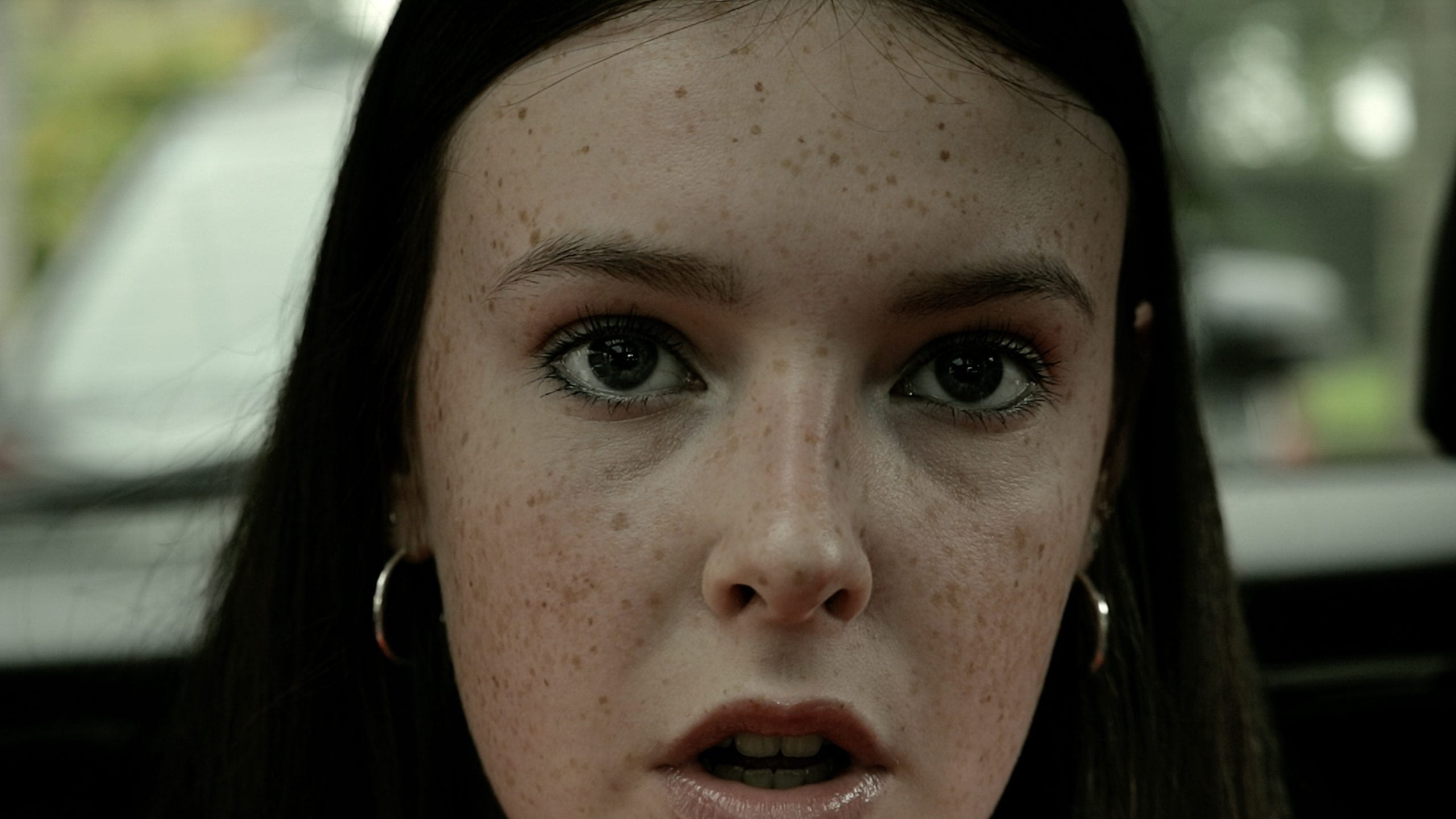
Still from Anna McGee’s Wild Ride
What role has Leeds played in your career so far?
Leeds is at the centre of the biggest county in the UK. The diversity of this county is immense and something I never even realised until I started making films and scouting for locations. I’ve created period, dystopian, and modern-day films within the space of mere miles. Yorkshire and Leeds are vast and deep in their history and culture; these places have become hubs of insanely creative individuals who offer rare opportunities to one another: I suppose the welcoming and broad film community mirrors the beautiful and diverse environment we live in.
What does recognition from BFI mean to you, and what do you hope to do next with your career?
I believe the BFI itself almost acts like a beacon for filmmakers. For the BFI Future Film Festival alone, they have screenings in London, Manchester, Scotland and even Wales. Something I believe no other film festival has done. The festival gives opportunities to filmmakers all over the UK (including humble Leeds.) To even be a part of this is an immense honour – I know Anna McGee would be proud!

Charles Humphreys – nominated for ‘Blood From A Stone’
How did you discover your talent and passion for making films?
My passion for filmmaking came in an unconventional route, I struggled a lot with my mental health when I was younger – when working at a factory and also being at college my careers teacher connected me with Idle Work Factory’s Jordon Scott Kennedy. It was through meeting Jordon that I found my interest in creative endeavours. He gave me my debut acting role in his Feature Film ‘Suicide Kelly’, which has gone on to win the Best Feature Film at the British Urban Film Festival. I think being from a working-class background and growing up in Bradford you don’t think these types of things are for you, but getting to meet a person like Jordon really helped me realise that having a passion for film is something to pursue. He once told me: ‘Creativity is a poor man’s currency.’ It is for everyone no matter your background, everyone has a story to tell.
There’s lots of interesting creative and stylistic decisions – using B&W, marker pen captions, and a mixture of documentary and animation. What was the rationale and is that something you’ll do with all your filmmaking?
Absolutely, I wanted to create a very D.I.Y. style with this animation. From using free software to edit and animate this project, to even creating the font for free. The captions were massively important. I wanted the film to be made as ethically as possible and putting the subtitles in as part of the film as you would see in comics mattered a lot to myself. I wanted the captions to be part of the film and not a second thought so that those who needed access to subtitles could still be fully immersed in the project and it’s something I would love to see more in film.
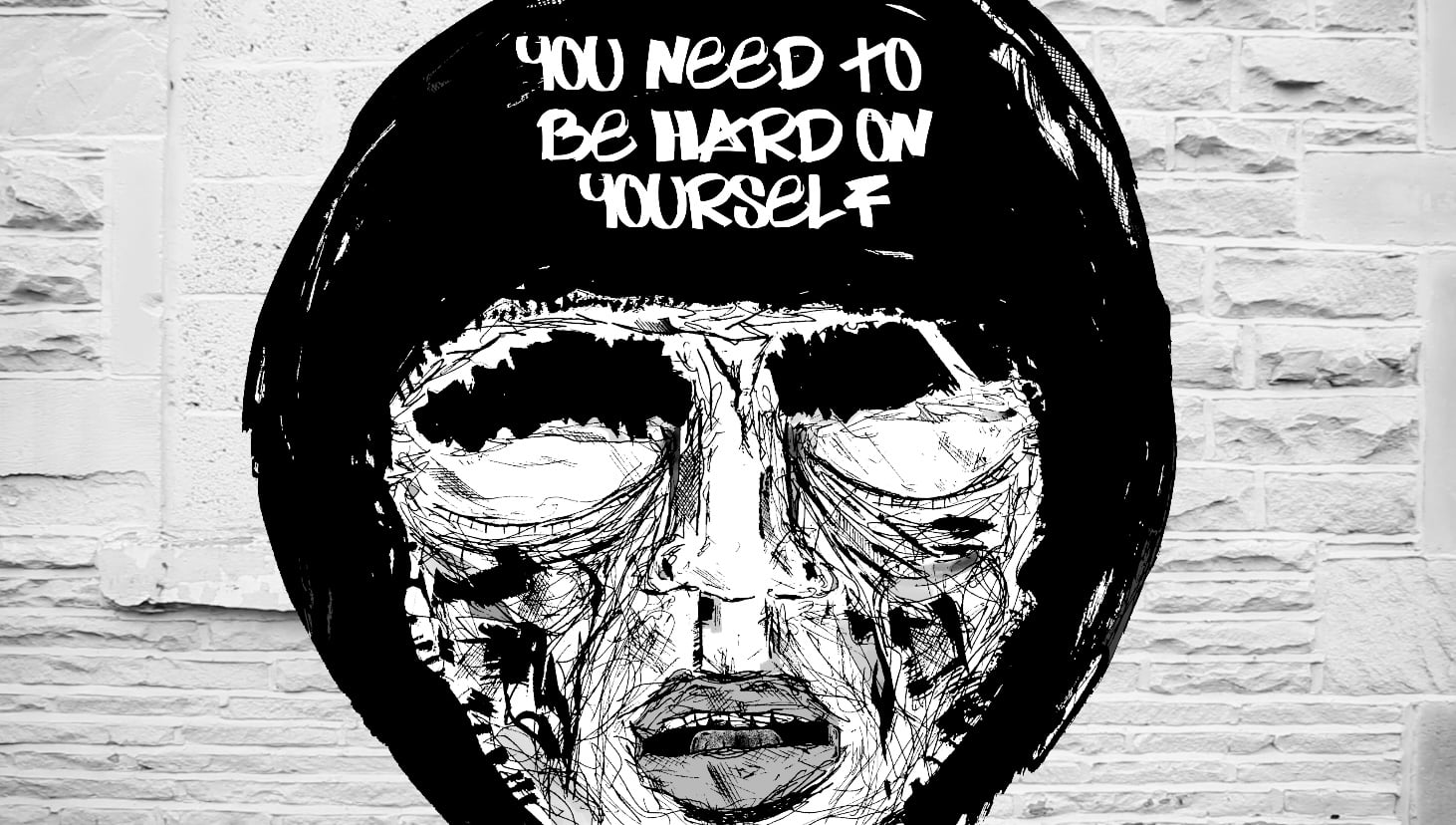
Still from Blood From A Stone
What is the complexity level of making something like this – how long does it take and what is the process?
The animation took from start to finish around the 9-month mark I’d say. I really couldn’t have done it without the fantastic work of Idle Work Factory, Producers of the project Casey Shaw and Jordon Scott Kennedy. The level of help they gave me on this project was a massive factor to how well the project ran – a big shout-out to them is necessary. Also to sound designer Rob Maddison who was hugely influential in the process, helping with so many creative decisions along the way. It truly was such a team effort. It was the first major project I had done animation wise. Being self-taught, it was quite daunting at first but it’s a process I wouldn’t change for the world.
There are powerful messages about masculinity and mental/physical well-being – is that something you want to see more of in film, particularly sports films, and will you return to these themes in your future work?
Definitely. I wanted this film to raise awareness and spread the message about these subject matters. If more films covered these topics it would hopefully have a positive impact on society. Mental health is something very close to my heart, having battled with it myself for a long time from OCD, anxiety, struggling with my eating, to even attempting suicide. Speaking up and speaking out is something I am such an advocate for and when not doing my creative work, I am a youth worker in local hospitals, speaking to and helping young people who are going through such issues. I will return to themes around mental health with future projects and hope to shed light on the dark times people experience.
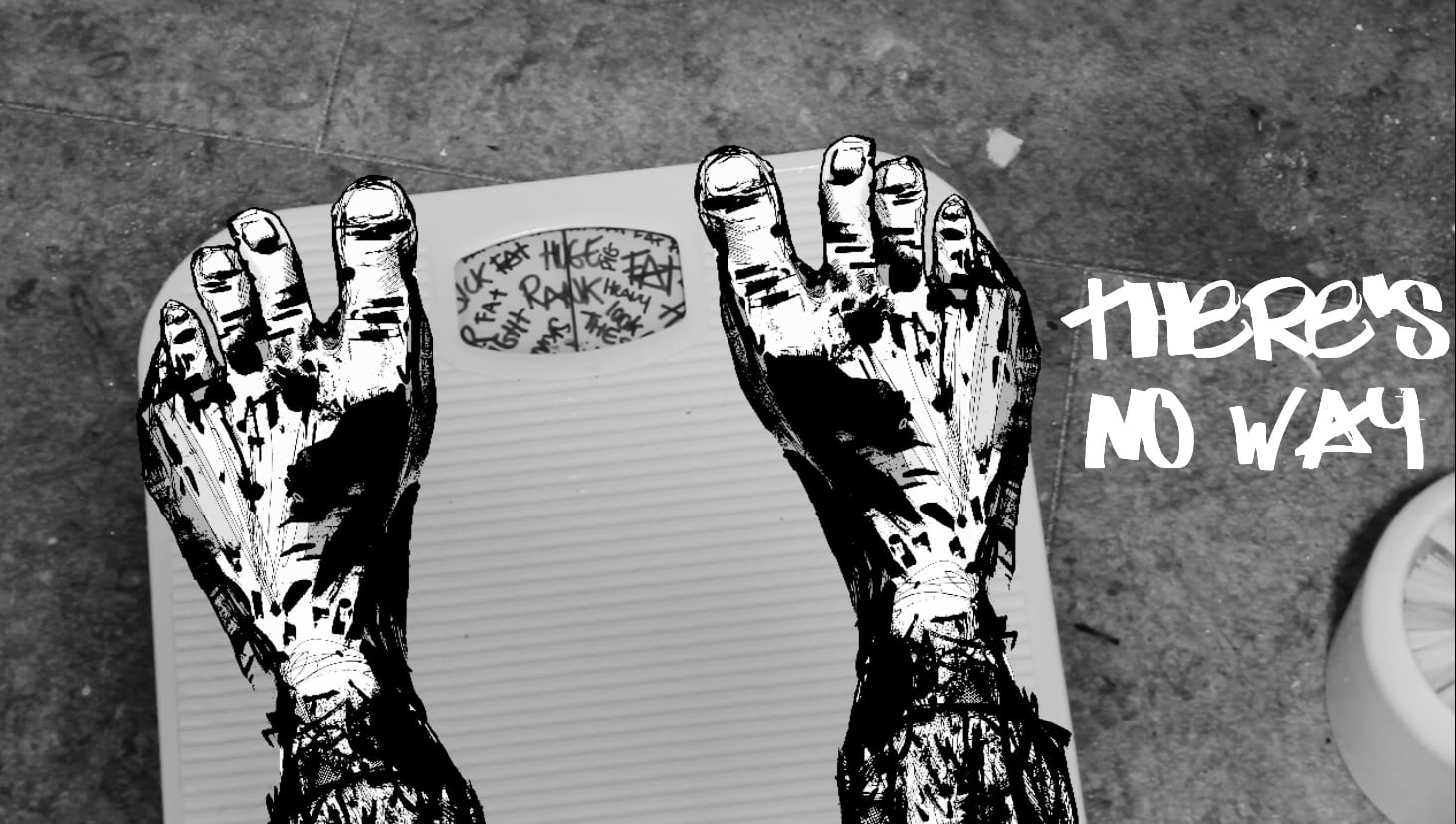
Still from Blood From A Stone
What role has Bradford played in your career so far?
Bradford has played a major role in my career as not just an animator but as an actor, a person and an all-around creative. Bradford gets a negative reputation by the media and it does my head in. Places like The Unit, based in Keighley (BD21) is a free open-access space for people at any level wanting to get into the film and TV industry. All the workshops they put on are completely free – they have free equipment, editing suites and workshops. It’s positive places like this that the media should be covering.
Bradford Council, Channel 4 and The Unit were holding an entry open to everyone from the region to apply for funding and Blood From A Stone received £1000. This allowed me to create the animation and pay for a cast, a recording studio etc. I was compelled to tell a story that would speak to those dealing with these issues. Setting this in Bradford was crucial as I wanted to show those from working-class areas such as myself that they are not alone and there are people out there that will understand.
What does recognition from BFI mean to you, and what do you hope to do next with your career?
It honestly means the world, being recognised by an organisation such as the British Film Institute is surreal. The fact the film is getting shared and promoted through their platform is a massive success. As far as future projects go, I want to keep creating animations that cover topics that need more awareness. The future is very exciting and watching people like Jordon Scott Kennedy and Casey Shaw at Idle Work Factory go from strength to strength, as well as seeing all the members of The Unit grow, only inspires me to keep on creating more and more.
***
There will be an in-venue event at BFI Southbank and BFI IMAX, online globally for free, and for the first time in cinemas in Manchester & Sheffield. Head to the BFI’s site for more info!
You can listen to a our podcast with filmmakers featured in the 2022 BFI event here.
Filed under: Film, TV & Tech
Tagged with: BFI, BFI Festival, BFI future film festival, Bradford, bradford film, festival, film, filmmaking, leeds, leeds film


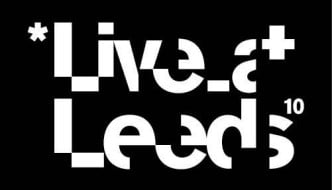
Comments